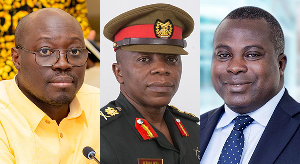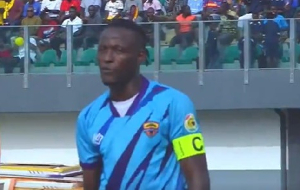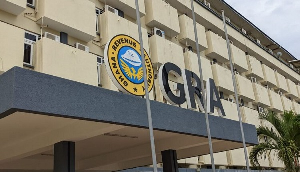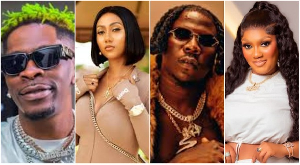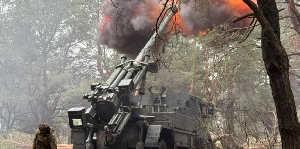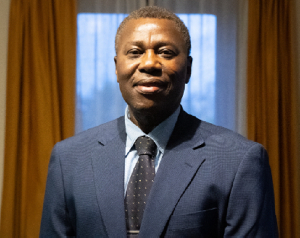We used the first three-part installments to raise several pertinent issues plaguing the present state of Ghanaian journalism. However, we are of the opinion that our critique of Ghanaian journalism had not been exhaustive enough, the point being that these problems are many and varied and no amount of ink can accommodate them all. Therefore, we shall pursue a few other problems in the journalism industry and their accompanying solutions here which we barely or never touched upon in our previous essays. First of all, clandestine collaboration between journalists and politicians with a view to skewing facts toward a certain favored destination of political accommodation is a well-known phenomenon. More critically, strategic deployment of shills at press conferences organized by political parties or individual politicians to engage the public on national issues threatens the integrity of journalism and credibility of journalists.
The politics of select journalists’ openly planting shills among a cluster of journalists in cahoots with politicians contaminates or vitiates the qualitative cast of journalism. This questionable practice potentially erodes transparency and objectivity as well as the ethics of public relations. As it is, these shills are worse than moirologists. As a matter of fact, these paid professional mourners of dubious political coloration are usually dragged out of their social pigsties by the sclerotic clench of greed into the open to shed crocodile tears in defense of political corruption, in behalf of their political patrons, distort public perception on indispensable political-economic issues, among others! Indeed such collaborations deny journalistic “truths” a momentous tendency of social presence in a body politic. Overall, Ghanaian journalism needs to make adequate room for muckraking journalism to operate at all levels of society.
Another possible complication from this dubious arrangement may point to situational misalignment between a people’s exercise of their franchise and either displacement or retention of a political party. We may add that this is not peculiar to Ghanaian journalism. And it is not to imply that radical resolution of this familiar problem has no need for implementation. Quite the opposite. Of course, the problem may be familiar but not necessarily so when execution of covert arrangements between journalists and politicians takes place outside the orbit of public reproach. This is a very complicated subject to tackle if neither the journalist nor the politician or anyone close to them makes any such underhand bargain public. Thus, it is probably only through public disclosure by individuals impelled to do so by moral or ethical suasion that progress can be made in terms of resolution. This is why the genre of muckraking journalism has to be developed to the fullest.
A conscientious journalist or politician with an enviable history of accomplishments trailing him or her or one whose political or journalistic future looks promising may not easily acquiesce to such scandalous arrangements. But our comparative valuation exercise makes practical sense depending on the weight and durability of what a journalist or a politician stands to gain in the present as opposed to the future. Political sloganeering, human tendency toward material comfort and personal aggrandizement, urge to outcompete one’s enemies, excessive politicking, and spiritual emptiness may interfere with individuals’ decisional processes as regards their interests. Unfortunately Ghana’s winner-takes-all political dispensation and democratic jejuneness limit choices for political identification for many a citizen. Both politicians and journalists are helpless victims of these shadowy systems of political fiction.
These reservations have several feet deeply stuck in the cesspits of other related problems. The following are of primary concern for public consideration: Lack of originality, plagiarism, fabrication, patchwriting, conscious factual distortions, and factual inaccuracies. Again, these variables have a notable presence of global character. The fact is that they do not detract from the epistemic context of Ghanaian journalism and therefore constitute serious operational hindrances to hypothetical effectuation of journalistic objectivity. Pack journalism may reinforce or perpetuate these negative instruments within the body of the journalism industry. The outcome of ambush journalism, yellow journalism, and chequebook journalism may impose similar operational strictures on journalistic objectivity.
Total disregard for attribution formalities, journalese (gobbledygook), celebrity journalism, analytic absence of feedback from the general public as to quality and impact of journalism on society, poorly constructed and unedited “crawl,” and churnalism invade the niches of investigative journalism and knowledge-based journalism. Another infrastructure of inhibitive tendencies toward journalistic objectivity includes inadequate or absence of research technologies and libraries, improper training of journalists, conflict of interest, budgetary constraints, intellectual laziness, public endorsement of mediocrity, a family of problems already noted elsewhere.
What is more, lack of adequate remuneration as well as of professional certification (licensure) for journalists denies social respectability to journalism as a professional practice. Poor remuneration may partly explain why politicians buy off unscrupulous journalists so easily, with journalists’ qualms comfortably secreted under the pillow of hibernation. The system should be restructured to promote effective journalism in the body politic. The system should also make it practically impossible for those without requisite professional training and proper certifications to practice journalism. However, this suggestion may prove problematic, even contrary to experience. There are many pertinent experiential instances from around the world where unprofessional journalists have outperformed their professional counterparts.
The central idea is to professionally equip journalistic trainees with analytic tools to make them measure up to public expectations and social responsibility, as well as to make them more critical of bad leadership, religious excesses, environmental degradation, corruption, and social putrefaction. Accordingly, the Ghanaian Journalists Association (GJA), the Ghanaian National Media Commission, and Ghana Institute of Journalism (GIJ) should strategically situate themselves in the forefront of public advocacy in seeking practical solutions to this familiar package of problems. Institutional formalization of licensing and effective resolution of problems afflicting the institution of journalism should assume the seat of highest priority. These institutional arms of public communication should spearhead public advocacy for the formation of peer-reviewed journalism journals whose investigational purview takes account of rigorous academic research in the specific areas of criticism, theory, and practice of journalism.
The philosophical scope of our propositions is wider than it seems. It says our reservations about journalism generally true hold for the Institute of Public Relations (IPR). In terms of additional recommendations for tackling some of Ghana’s major rising national problems through the journalism of political activism, however, we strongly affirm watchdog journalism and advocacy journalism as two effective avenues of arbitration in behalf of social justice. These two do not hold the registry of all innovative answers. Public perception is that the depth to which Ghana’s rising problems have sunk requires a corresponding depth of vision, public advocacy, and remediation strategies from Ghanaians across social stratification. This boils down to a simple fact: Media quality. On the one hand, debates on media quality become more interesting, even provocative, if competition between the private press and the public press is allowed a wholesome degree of narrative fierceness.
Experience affirms the view that the aroma of healthy competition begets innovation, innovativeness. Therefore, it is in the best interest of society to allow stiff competition between the private press and the public press additional breathing space in the arena of public psychology, implying that, unlike the private media, the two leading public newspapers, namely, “The Daily Graphic” and “Ghanaian Times,” stand a chance of being uncritical of government, especially an incumbent one. This suggestion stands tall in the company of other variables. Putting everything together, owners of media houses have a responsibility to build strong yet less opinionated and competent editing outfits and oversight structures to deal with plagiarism, patchwriting, and so on. We herewith refer to capable copyeditors, proofreaders, technical editors, etc. Focus should be on editors-in-chief, desk editors, and managing editors.
We propose further that those individuals who are philosophically dissatisfied with or cannot stand the largely political work of corporate media could pursue the alternative course of freelance journalism. By “corporate media,” we mean those Ghanaian media platforms in cahoots with the political philosophy of powerful forces controlling political parties and politicians. These powerful forces are the financial backbones of political parties. This purposive reference to freelance journalism has its attendant costs, costs expressed in terms of material and intellectual resources, if one truly wants to reach a wider dragnet of readership, to compete successfully with well-established media outlets with tight political connections and economic clout, and so forth. Fortunately Ghana’s liberal media laws render samizdat journalism absolutely unnecessary, impractical.
We are generally dealing with the practice of digital journalism or online journalism, of which freelance journalism owes some measure of operational allegiance. Access to a computer keyboard may not be enough to put a freelance journalist in competition with established media outfits with a view to getting across to a wide readership republic. It takes more than that. Personal sacrifice may be just one of the many prohibitive costs. Alternatively, a journalist who pursues that course, freelance journalism, eventually enters the private arena for the most part. That journalist could as well submit his writings for publication in the corporate media, private or otherwise, in exchange for his treasured portfolio of personal preferences and beliefs, morals, ethos, political philosophy, conscience, and worldview. Any such association automatically means that any moral mischance on the part of the corporate media makes that journalist equally culpable in the sight of public indictment.
Consequently, that journalist may have to fish for a media outlet whose general philosophy about organizational management and moral responsibilities to the reading public coincides with his or hers. Failing that, he or she goes it alone. Which is more responsible, the private media or the public media? Our only reservation about the private media is their owners’ and employees’ refusal to exercise a restraining hand when criticizing incumbency, for, among other things, they tend to go overboard from time to time in their critical moments of effusive epiphanies. Rather, the private press is required to keep a check on the excesses of the public media, and vice versa. Constructive conflict between the two, private and public, should certainly tease out the best in human beings. This strategy may not necessarily bode well for the intellectual, philosophical, as well as investigational health of journalism, yet fruitful competition is the price society pays for progress.
We propose that Ghanaian journalism should focus on the following general concerns: Education reform with particular emphasis on STEM (Science, technology, engineering, mathematics); question religious excesses, superstition, religious charlatanry; promote unity among Ghanaians, environmental consciousness, public health; demand constitutional review of the winner-takes-all political syndrome; take government to task for the poor state of public services and gross mismanagement of national wealth; protest against child labor, juvenile delinquency, poor public sanitation, witch camps and trokosi; pressure government to raise the people’s standard of living and quality of life; advocate prison reform, judicial fairness; demand accountability from the private sector: and fight galamsey, environmental pollution, corruption at all levels of Ghanaian society.
Particularly, the rising tide of religious charlatanry in Ghanaian television journalism should be of great concern to progressive men and women cast in the mold of scientific rationalism, those in the field of science journalism. Wole Soyinka has taken note of this problem. “…to be distinguished from the soap opera of Christian faith healing that has become compulsive television viewing for addicts of the miraculous or of simply atrocious theater,” he writes. “This latter phenomenon, however, ironically reinforces the unintended. Spurious though a number of these ‘miracle’ healings are, and sometimes spectacularly exposed as such…But we can leave the invisible or mysterious out of the equation, there being so much lucrative commerce in charlatanism.” This is where science journalism and investigative journalism come in although the former genre has not achieved a status of epistemic presence yet in the Ghanaian media landscape.
We should add that successful execution of these tasks may resolve some of the philosophical difficulties facing effective measurement of “quality” and “impact,” which we explored at some length in one of the previous installments. But improving Ghanaian journalism need not be the exclusive responsibility of government. The private sector, including civil society organizations, has a responsibility to play as well. As well, wealthy private citizens can direct their social influence and philanthropic antennae toward institutional reform where, among other aims, their financial largesse contributes to formation of endowments and academic chairs named in their honor. For one thing, endowed academic chairs represent alternative means of funding institutions of higher learning. For another, the family names of philanthropists are memorialized in public imagination via status assignation.
These problems we have elaborated are not easily dissoluble. Fortunately all is not lost yet. Moreover, those who like the Americans pride themselves on free speech and free press have come a long way. In fact, American adoption of free press, religious freedom, and free speech has taken more than 200 years to “perfect.” Ghana therefore has a harrowingly long mileage to cover in order to catch up with the likes of America. A surprising irony points to the fact that these freedoms became institutional realities probably in the second half of the 20th century. Bill Maher, Whoopi Goldberg, and Dan Rather lost their jobs for their open criticisms of U.S. President George W. Bush in connection with America’s illegal invasion of Iraq. This is how far America has come. Ideally, neither America nor Western Europe can claim to be a citadel of free press, except perhaps in comparative relationship with known dictatorships.
Yet, that is how far Ghana also has to go before she can come into her own as a viable democracy totally responsive to the demanding heartbeat of public expectations, but until that momentous day arrives and registers a formidable presence in public psychology, Ghanaian particracy will continue to negate any conscious efforts at participatory democracy. A preposterous irony, possibly inexplicable, says Ghanaian journalism goes the way of abject irresponsibility the more freedoms granted the press. It is also important that corruption in the journalism industry should take a priority seat in the social docket on egregious national crimes, with Ghana’s energy crisis (power outage and electricity rationing) itself taking its fair share of the epistemic cake of quality journalism. Power outage may negatively impact journalism and possibly reading consistency. Finally, lest we are not misunderstood, we want to make it clear again that journalism, whether electronic journalism or print journalism, should not exclusively take the heat for journalists’ intellectual and moral shortcomings.
We have made it eloquently known from time to time that the journalism industry is a marriage of convenience that unites a people across political, intellectual, and social spaces, an arrangement executed via abstract instrumental mediation of media accommodation. But where mass poverty becomes social definition of a body politic’s economic order, then, citizens are forced to respond to the practical needs of their rumbling stomachs rather than to the intense demands of abstraction laid out on a cracked plate of public psychology. Thus, poverty weakens the active, critical, and inquiring impulse of individual or collective psychology. Further, Ghana’s political biocracy tends to dwarf alternative viewpoints well past the four rigid walls of partisan politics, where the NPP and the NDC practically dominate the space of national socio-political discourse. Unrestricted access to the internet also tends to expose unsuspecting readers to negative foreign influences. Reform strategies in the journalism industry must surely accommodate these practical suggestions.
Let us end with Chinua Achebe: “Good stories attract us and good stories are also moral stories. I’ve never seen a really good story that is immoral, and I think there is something in us which impels us towards good stories…That’s really how I would put it, that we struggle, and because we struggle, that struggle has to be told, the story of that struggle has to be conveyed to another generation. You have struggle and story, and these two are quite enough for me (See Maria Popova’s “Chinua Achebe on the Meaning of Life and the Writer’s Responsibility in the World”).” A poignant, definitive statement on life and writer’s responsibilities from the master storyteller himself! These statements say the art of writing is not merely about the practice of writing, that is, putting letters and words together for the sake of putting letters and words together. Writing has more depth than orthography, another complicated activity. Writing itself is about life, about the aggregate struggles and aggregate stories that constitutively enrich life, making life worth living. That words, sentences, and paragraphs have lives on their own is not in doubt!
Thus writing surely links past and future, Achebe’s “another generation,” in a marriage made possible from the stance of the present. Good writing, philanthropy, development sociology, human and race relations, moral activism, development economics, and humanism constitute the civilizing pillars of human progress. We inferentially point out Achebe’s “struggle” to reinforce our persistent demands for social justice on behalf of posterity and human dignity. Indeed Achebe’s is a beautiful capsule delineation of sheer human wisdom. What is more, his is diagnostic or prognostic journalism at its best! Are our journalists listening to the repository of great wisdom, Chinua Achebe? We hope so!
We shall look at additional questions in two installments. Stay tuned!
Opinions of Friday, 14 November 2014
Columnist: Kwarteng, Francis


